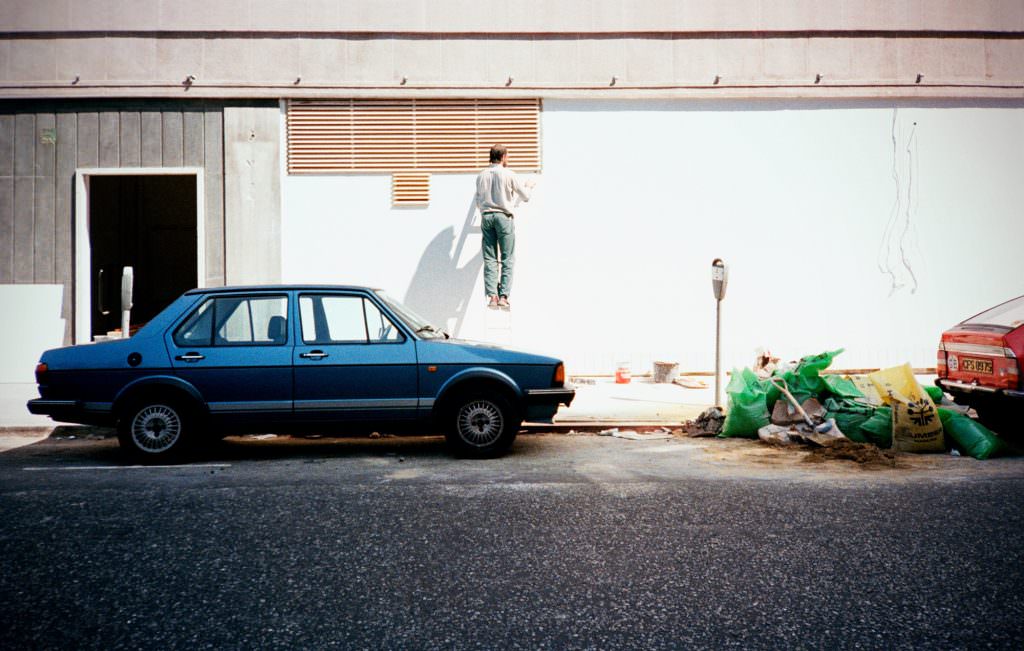Alan Burles: Best Series Finalist of 2022 exibart street contest
Dear Alan,
first of all, congratulations! You are one of the 10 finalists of the third Exibart Street contest in Best Series category.
Thank you.
Can you tell us something about yourself and about the finalist series?
My early career was as an art director in advertising, and I was fortunate enough to work at some terrific ad agencies alongside amazing people. This means that through my career I was steeped in the world of ideas and I now try to express that in my photographs. So when I saw that Exibart were hosting a street photo competition with Steve McCurry judging and Leica donating the prizes, it was obviously to be taken seriously and I hoped my ideas based photographs might have a chance.
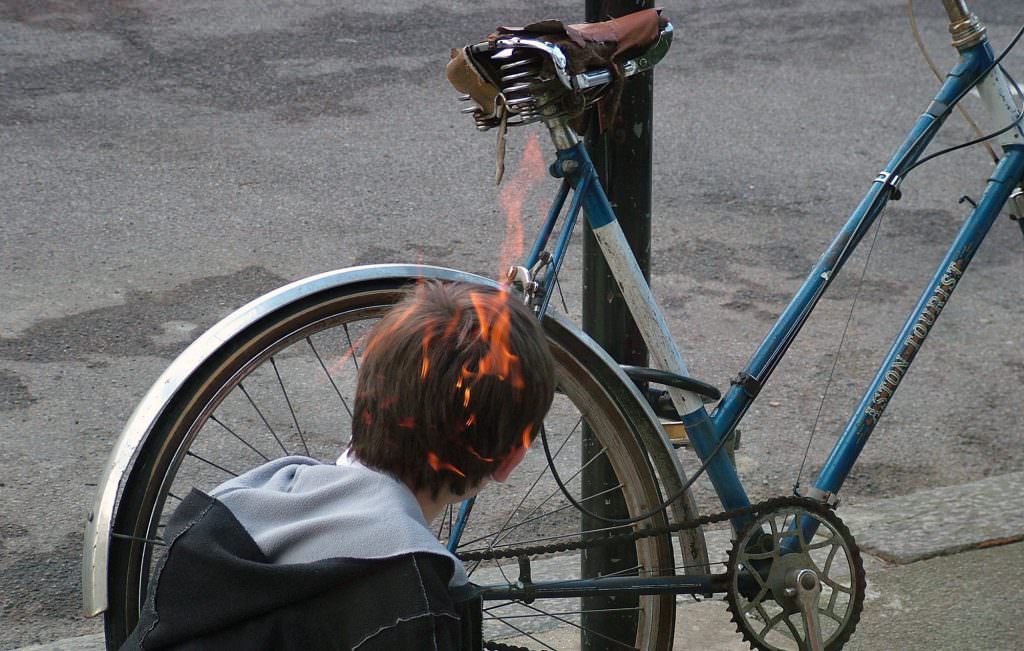
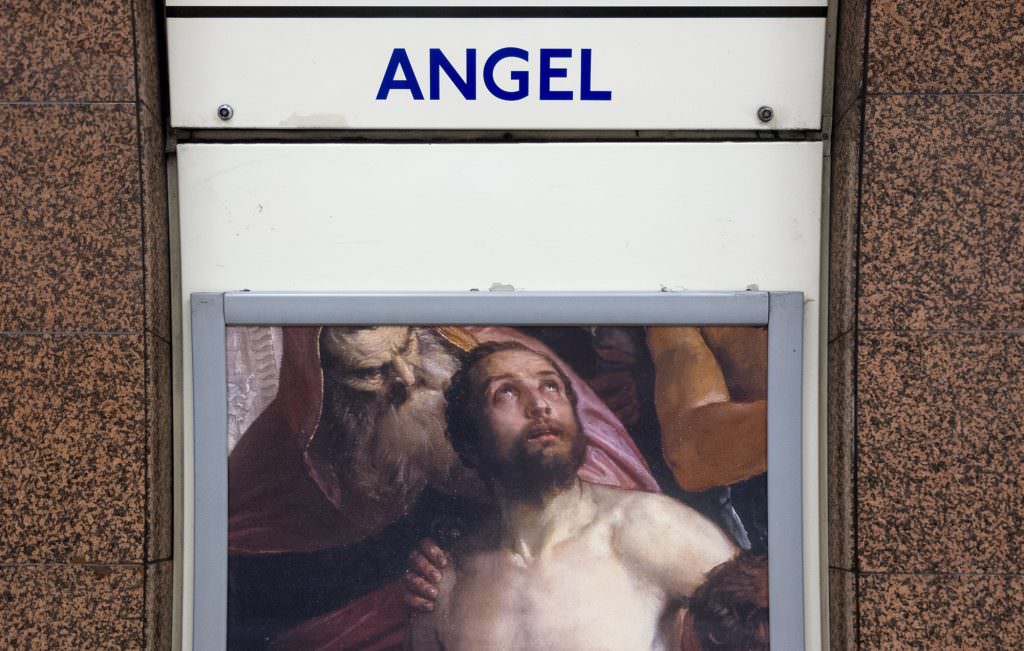
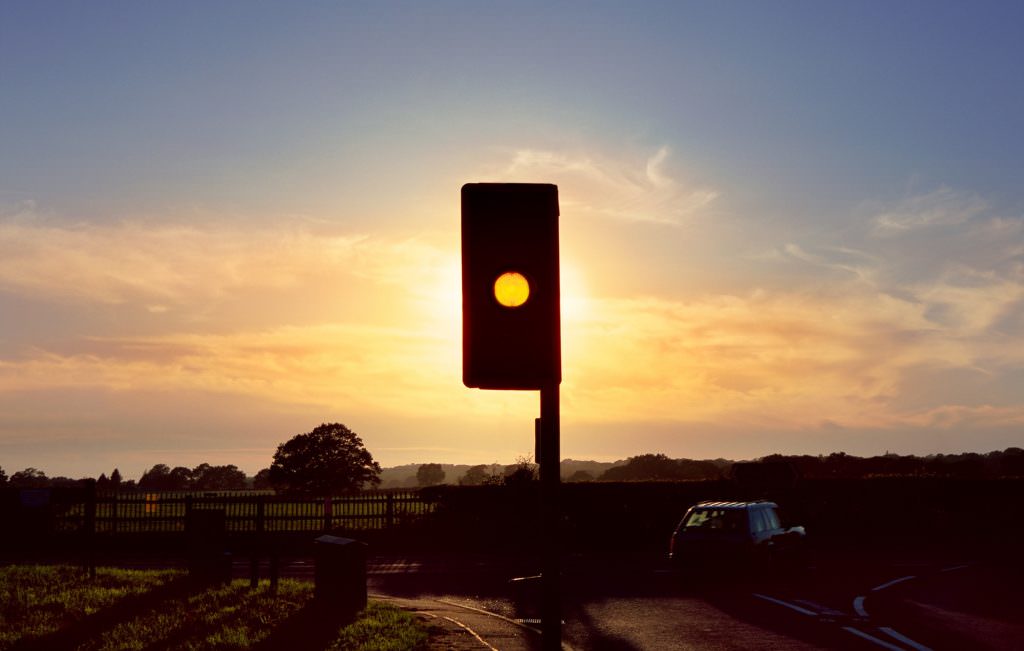
How would you define your photographic style?
I do not specifically look for photos, I let life take me where it will and with luck photographs seem to happen.
A philosopher once said ‘Love cannot be achieved, you can only be available for it’ and I approach photography in the same way. I find that Life gives constantly.
And if I have any intention it is trying to avoid taking photographs that will disappear into the clichés that we now see all around us in street photography.
My photographs were reviewed in a magazine in China recently and I got the Mandarin text translated. The reviewer said:
“Sometimes it needs you to just enjoy his work, sometimes it requires your eyes to listen to the jokes it’s telling you.”
I thought that was delightful and now call the way I work Listening With My Eyes.
Have you ever studied at a photography school or are you a self-taught artist?
I did go to art school but I didn’t study photography, I learned how to be an art director, in other words how to be creative in advertising.
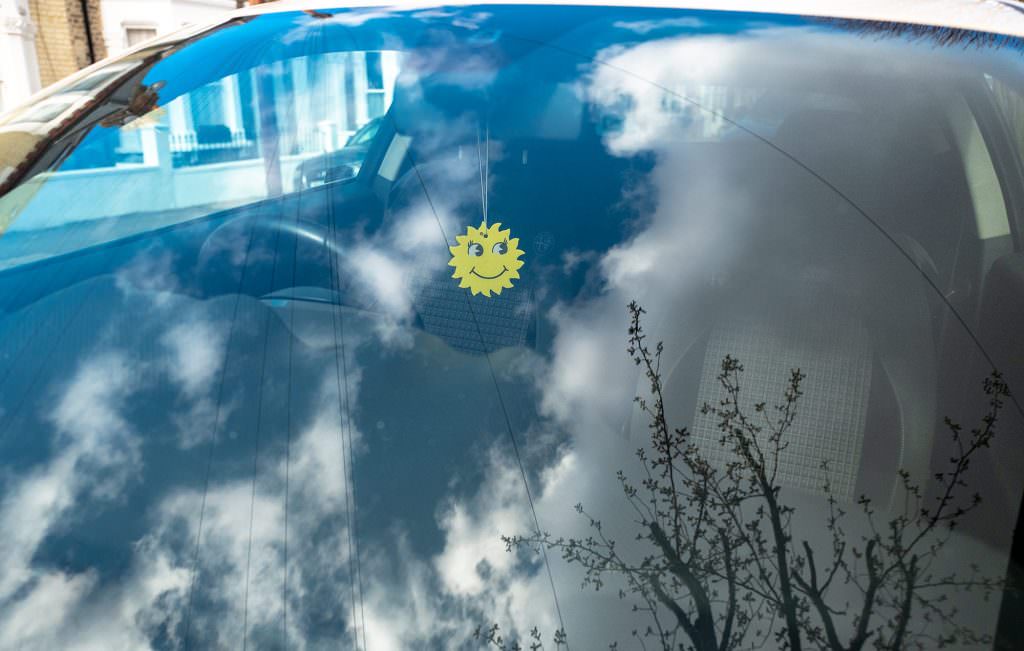
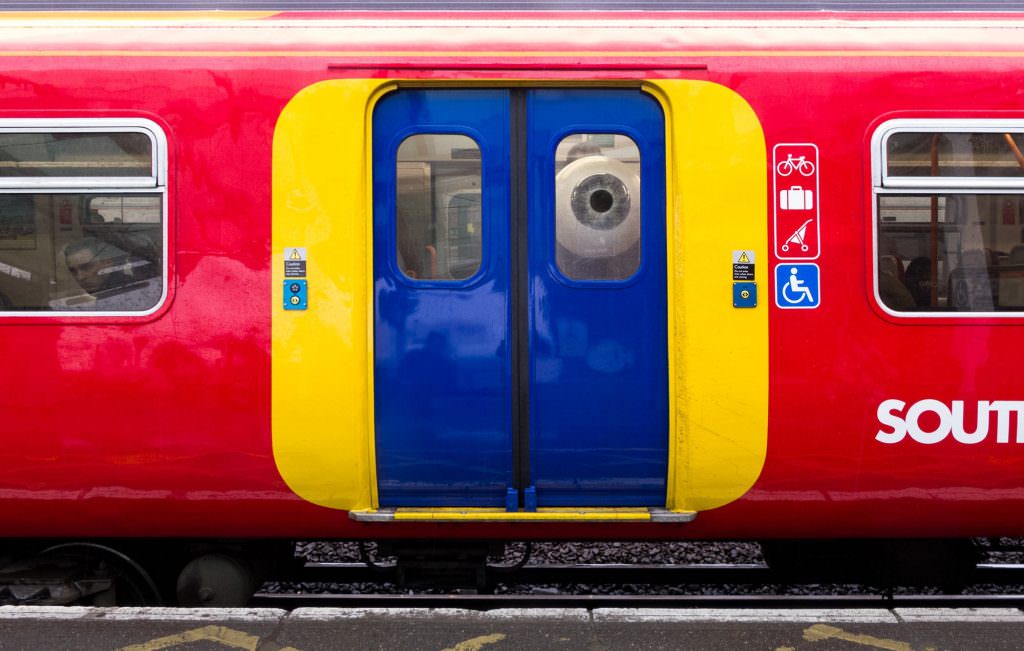
Who are the Masters of Photography who inspired you most in your photographic works?
The first two names I always give are Elliot Erwitt and Andreas Gursky. Erwitt for the quality of his observation and sophistication of his humour and Gursky for his semi-abstract view of the world and the sheer quality of his photographs which he presents at such a large scale.
Beyond that there are of course many wonderful photographers and the ones that inspire me the most are those who successfully express a narrative, show wit, or astonish me with the extraordinariness of their work. Robert Doisneau, André Kertész, Helen Levitt, Martin Parr, Joseph Koudelka, William Eggleston, Diane Arbus spring to mind but of course there are many more.
Do you ever do Street Photography with your smartphone?
Yes, occasionally but I don’t feel I have the same control or picture quality as with my camera. It is however wonderfully useful in all sorts of situations so I am happy that it is with me at all times.
“In the instant of clicking the shutter I am not ethical, I shoot everything and everybody. My reasoning is that if I don’t shoot it then I cannot reject it later – which I often do on ethical or sensitivity grounds.”
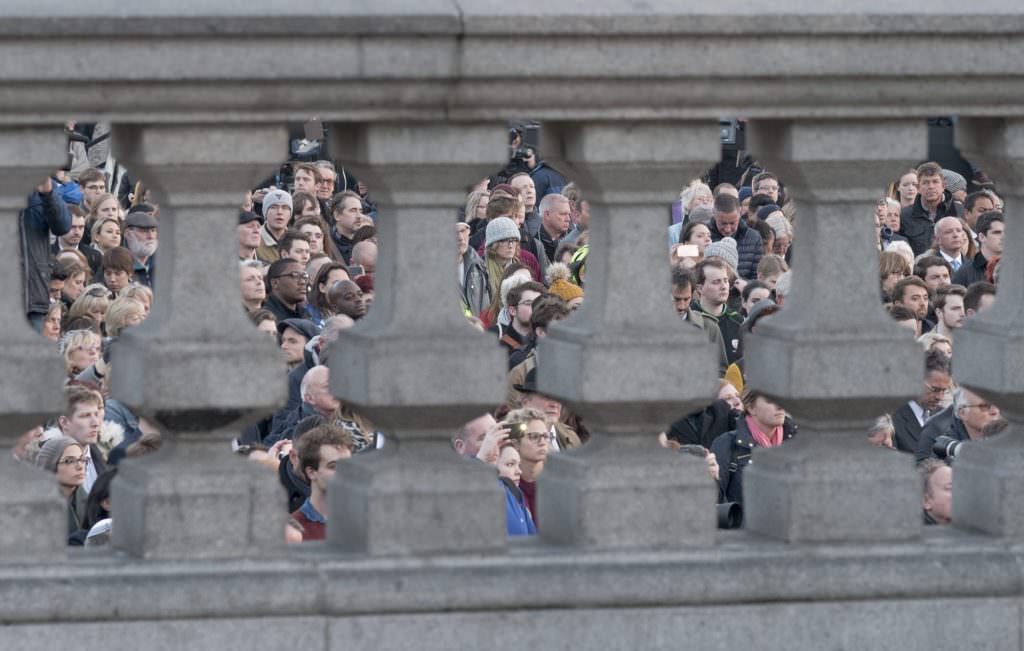
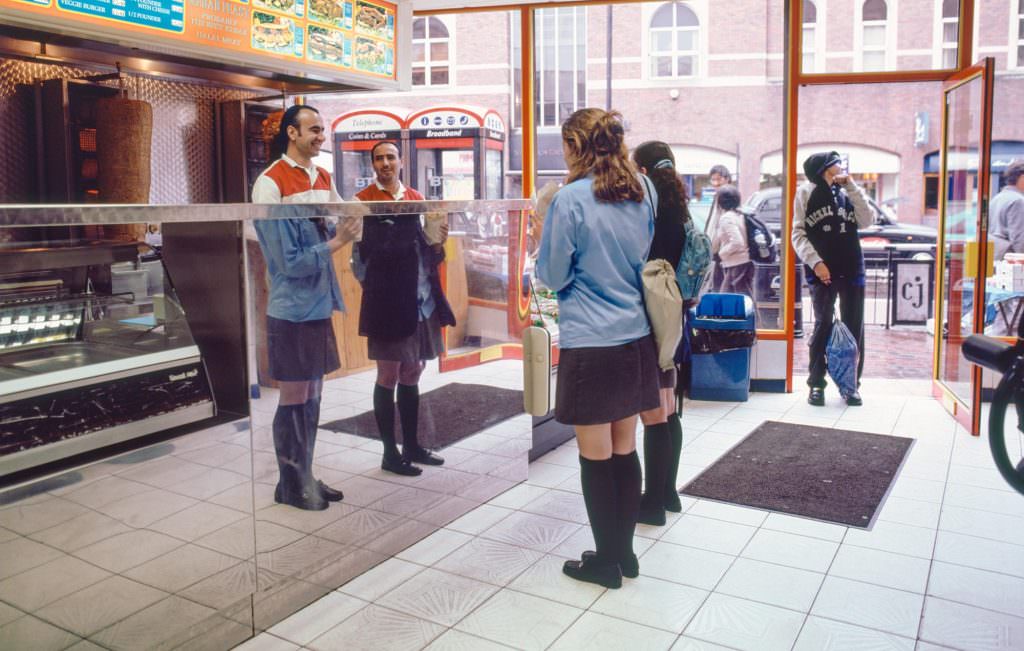
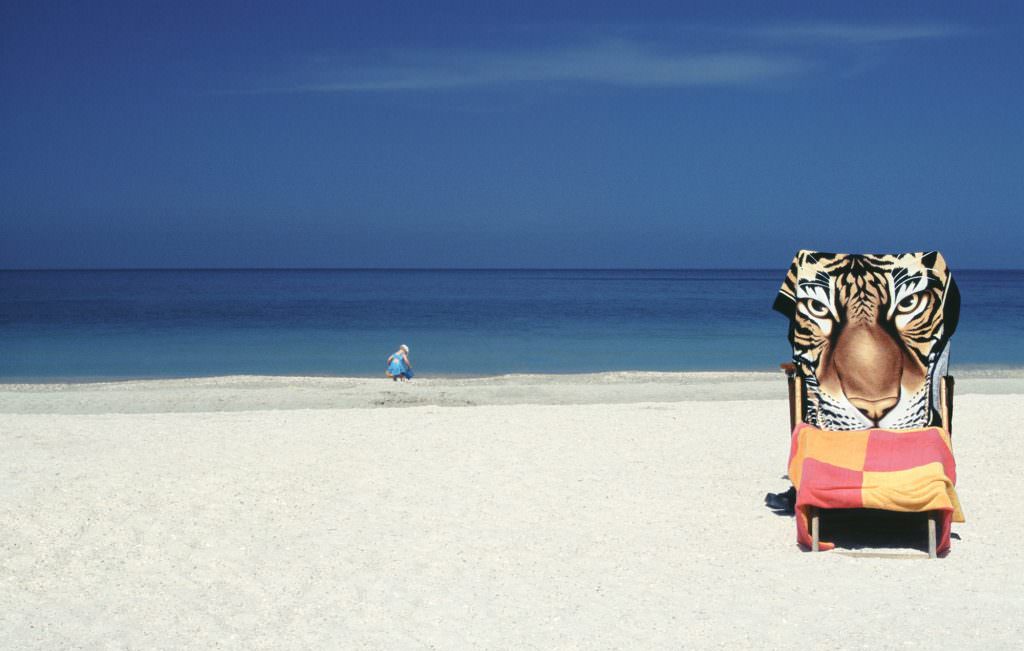
Analog and digital photography. Do you see these as alternatives to one another or the same thing?
For me they are one and the same thing but if someone wants to call them different I understand that.
It is a bit like my feeling that I have always just been ‘a photographer’ but it so happens that some of my photographs fall into the bracket of Street Photography.
Black and white and color. Two different worlds. You decided to go color. Why? Do you ever shoot in Black and white?
I decided it way back when I had a job as an advertising art director.
In advertising if you don’t do creative work that is ‘different’ then how can you hope that your advertisement stands out from the crowd?
So I applied that thinking to myself, and thought ‘well, the greats have all been shooting in b/w so I had better be different and shoot in colour.’
Having said that, my photography was very much a hobby and I was not very disciplined about what film I had in my camera so I did sometimes shoot rolls of b/w.
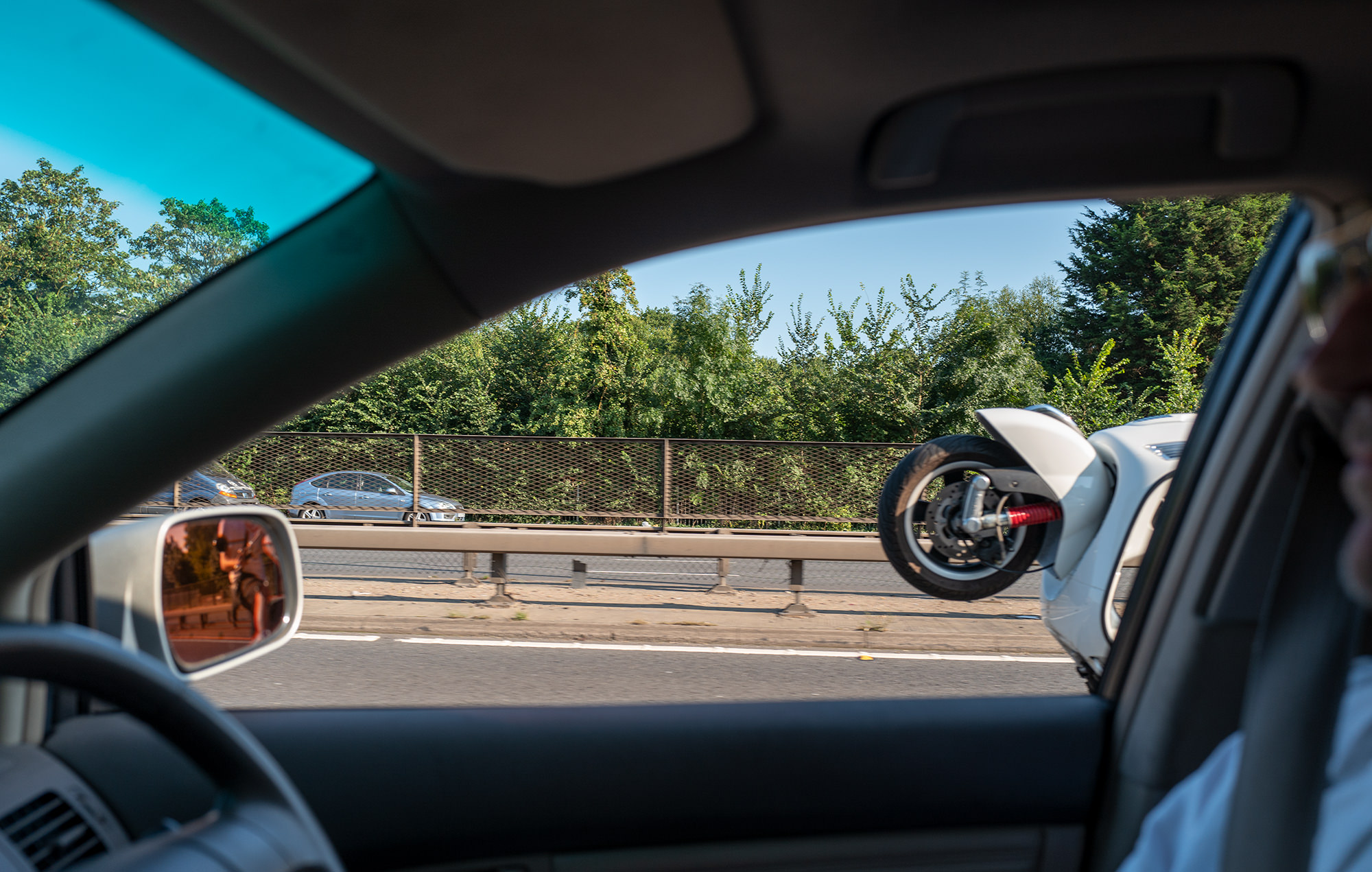
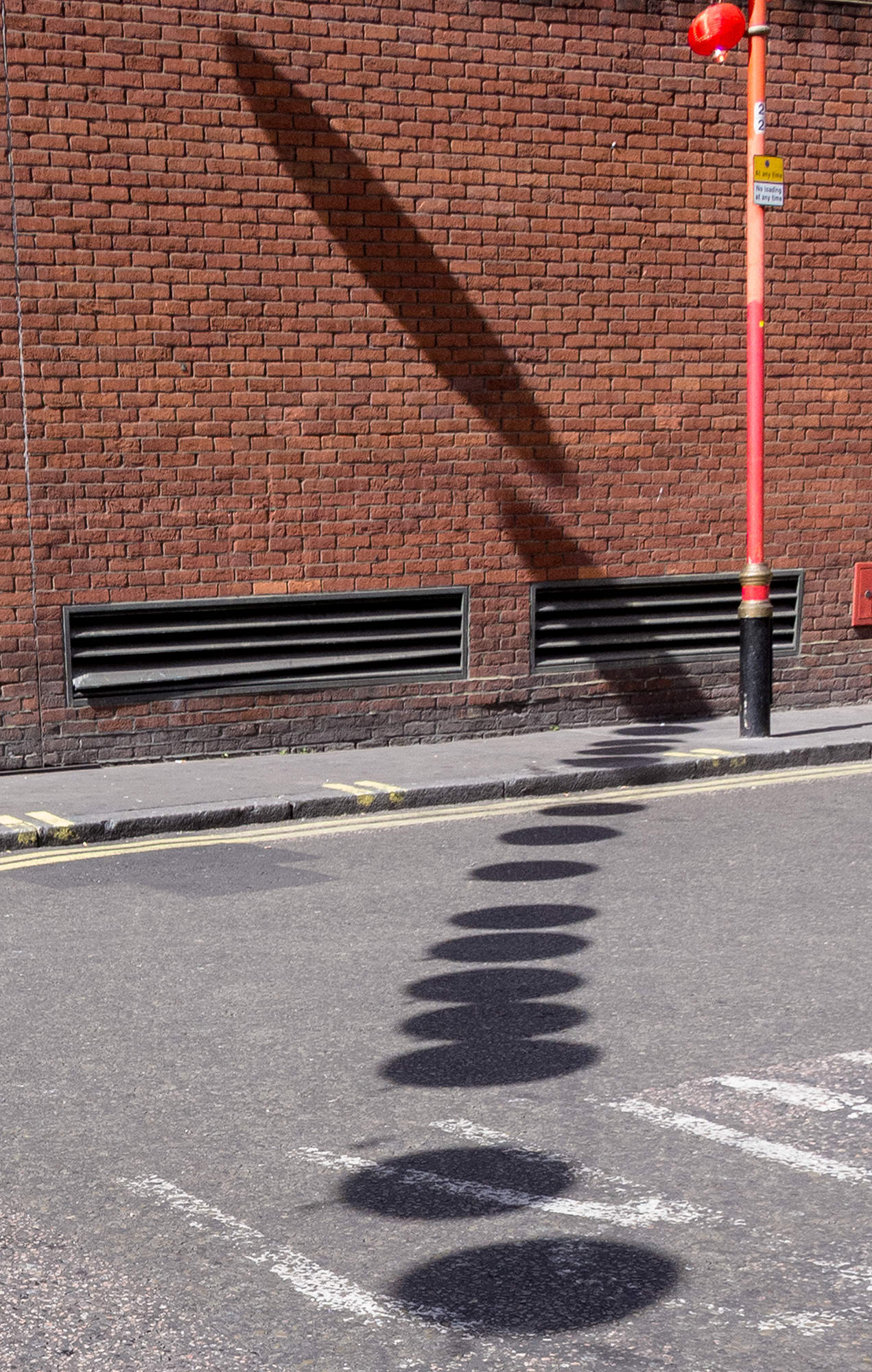
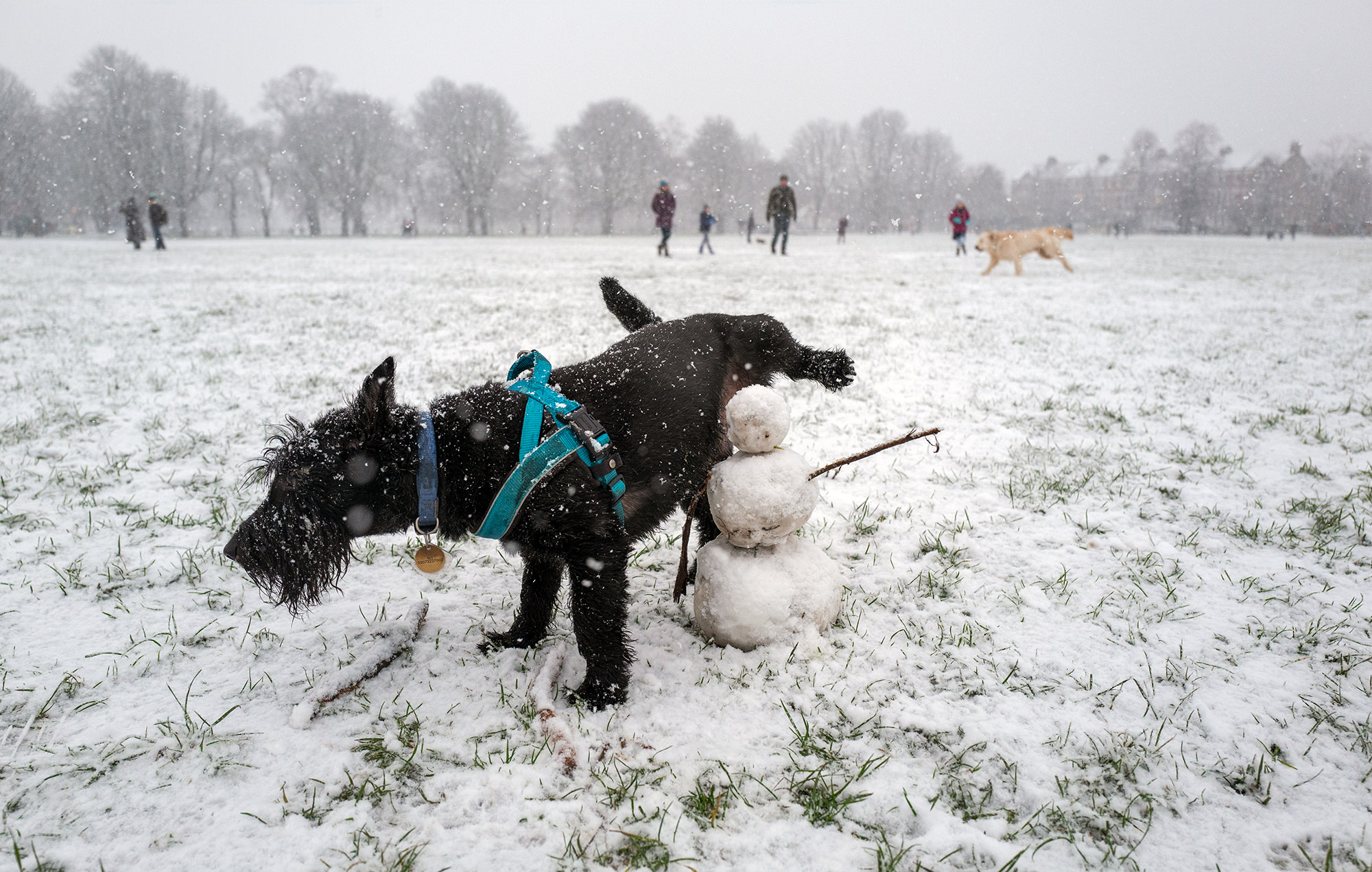
Do you think Street Photography has a more documentary or more artistic value?
More documentary value for sure. The bulk of street photography rarely seems to achieve (is that the right word?) artistic value and from my point of view, I find that disappointing. A few photographers are regarded as artists as well as documentarists; William Eggleston, Diane Arbus, Saul Leiter come to mind and it is something that I think about a lot, how to take what is bracketed as street photography onto a different (higher?) plane.
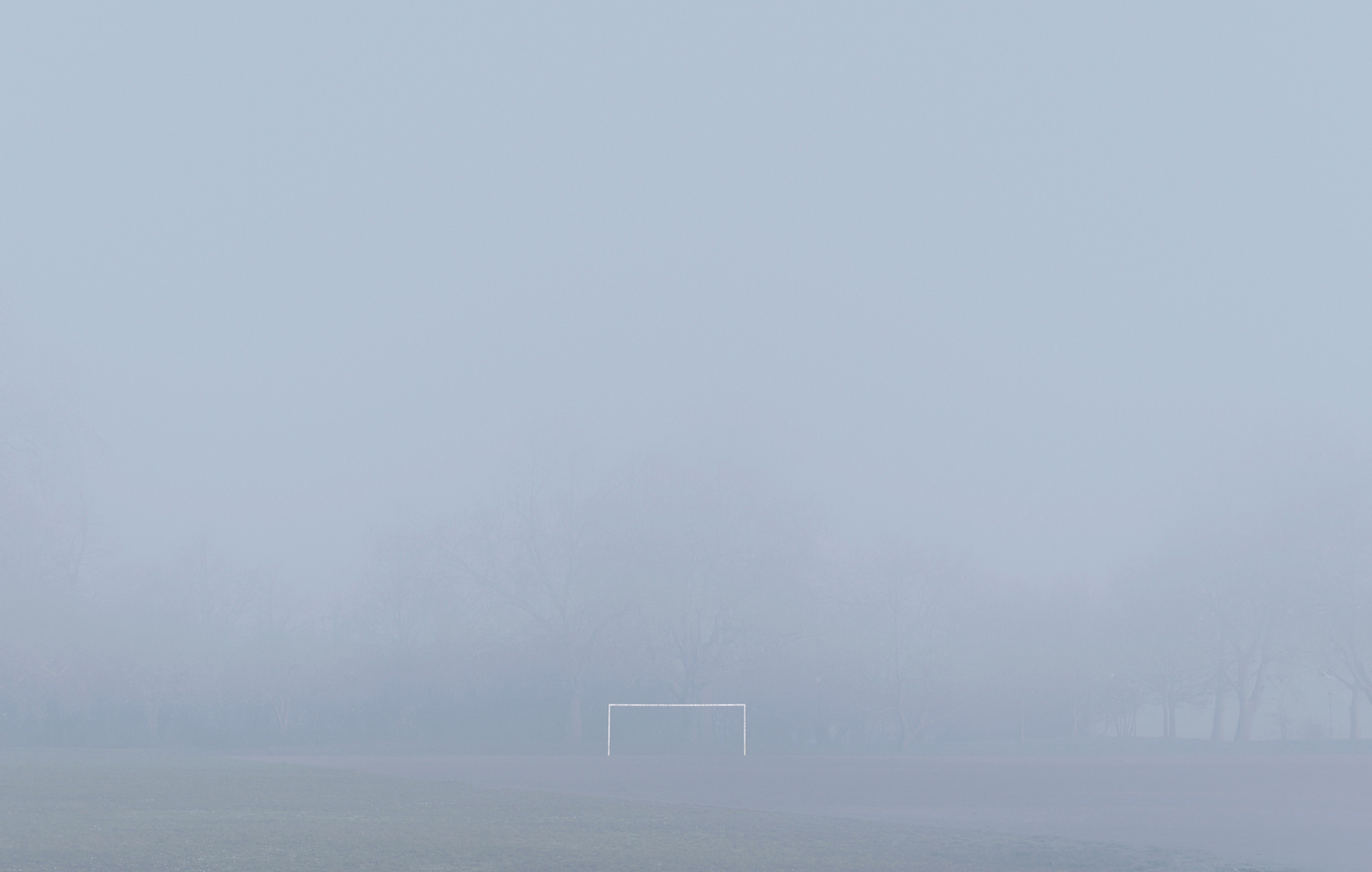
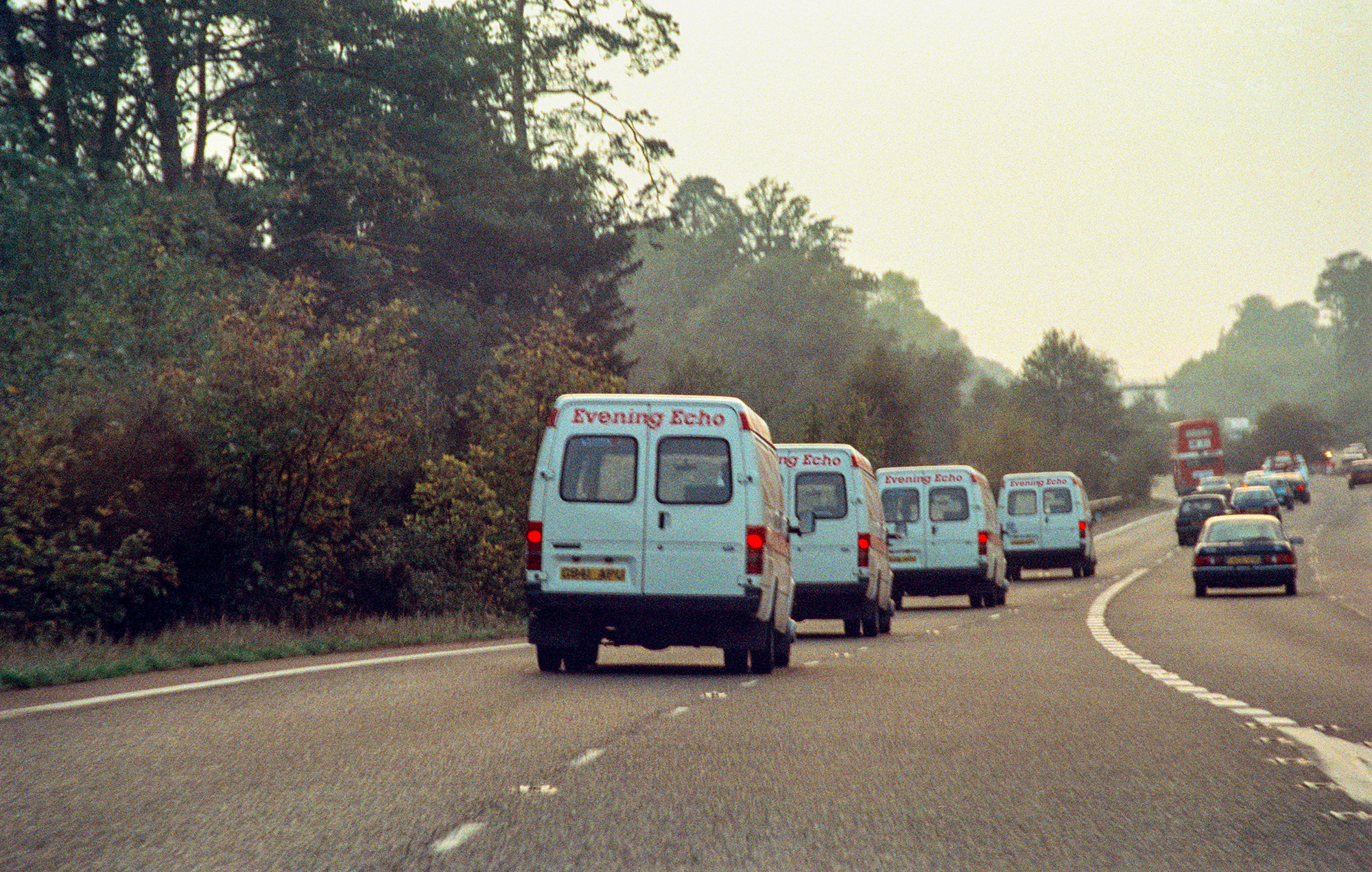
When you take photos, do you ever have a theme/project in mind?
At the beginning, very rarely, I just carried a camera everywhere and what presented itself was what I photographed. However as time has gone by and I look through my prints and files I notice that I repeatedly take photos of some scenes, objects, compositions etc and therefore they grow into a project.
Do you think there are ethical limits in street photography? Do you think it’s possible to shoot everything and everybody? What is your approach in street photography?
In the instant of clicking the shutter I am not ethical, I shoot everything and everybody. My reasoning is that if I don’t shoot it then I cannot reject it later – which I often do on ethical or sensitivity grounds.
I don’t feel it is my place to embarrass someone or exploit them for amusement or documentary reasons.
Having said that (and if possible) I often approach my subject with a big grin on my face and say ‘look what I just took, would you like a print of it?’ thus beginning the conversation to get their approval.
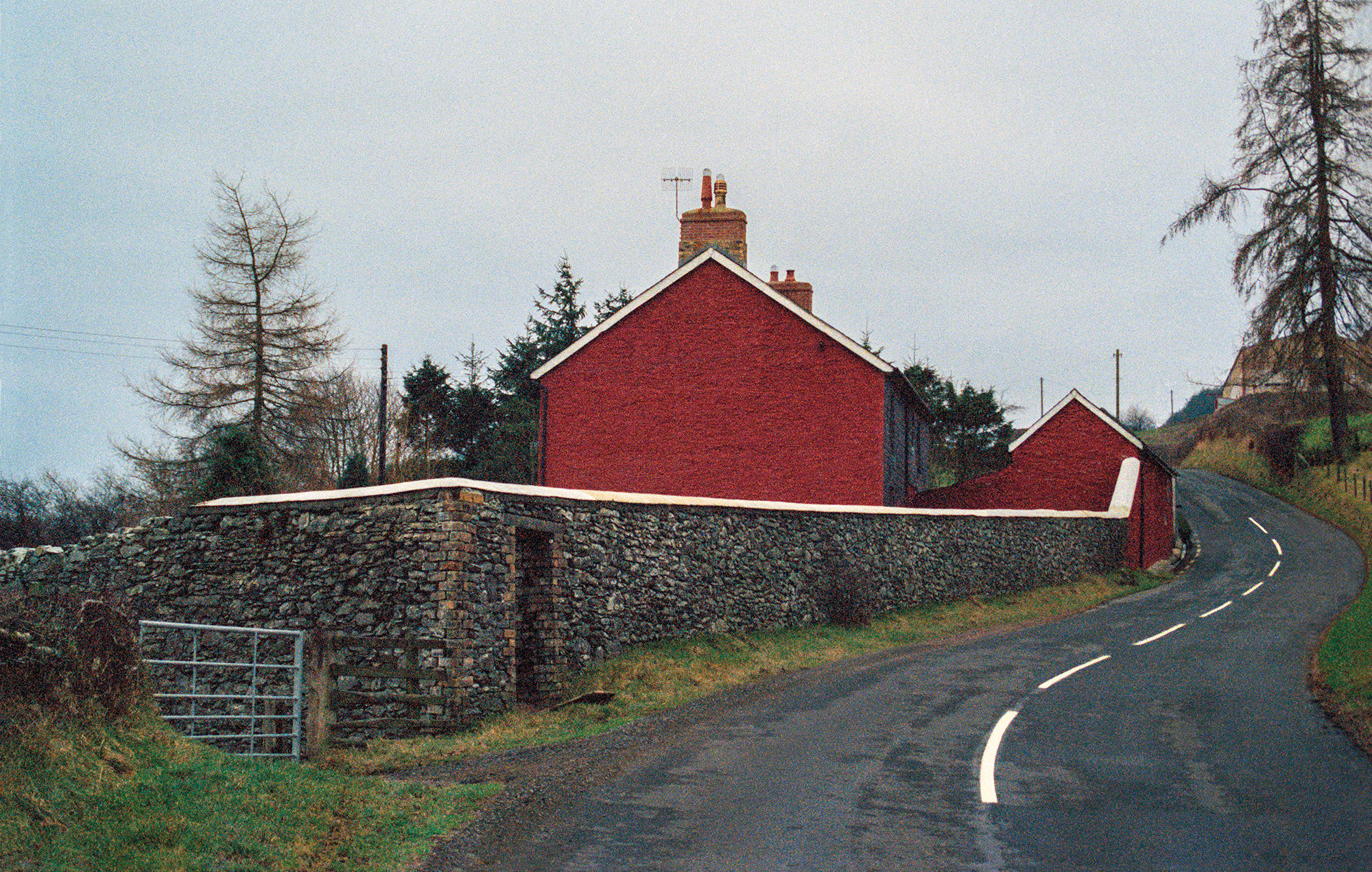
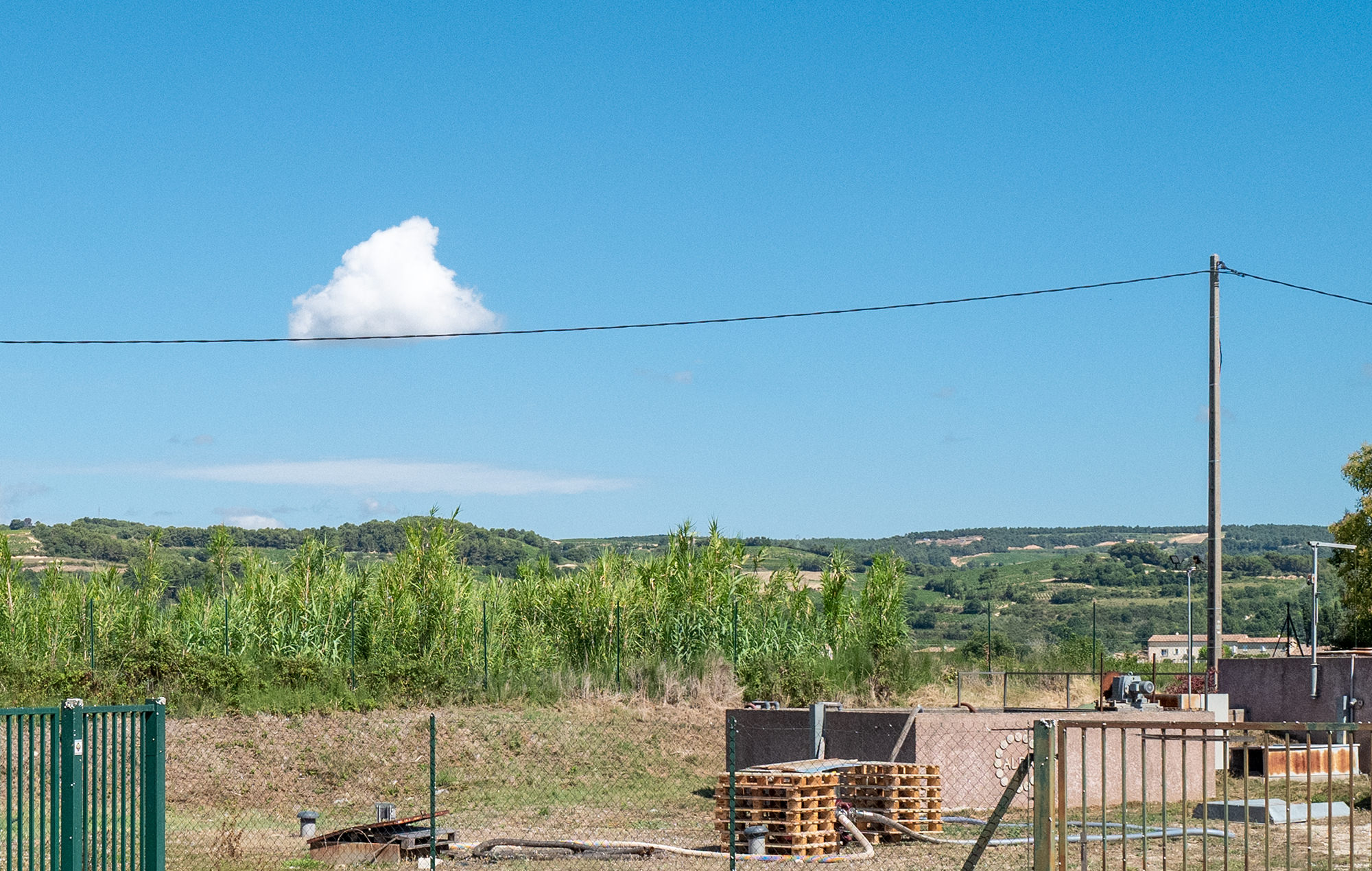
What kind of equipment do you use and what role, in your opinion, does equipment have in street photography?
I am using a Leica Q which I was fortunate enough to win 4 years ago through the Street Photography International competition.
Before that I mainly had pocket cameras (Olympus XA, Minox GT, Ricoh GR film cameras and Canon G11, Canon G12 and Canon G7X digital cameras) so that I looked like a tourist and could take it anywhere – and much though I enjoyed this cameras and found the quality excellent, I cannot believe the precision and quality that the Leica gives me, the crispness was a revelation to me.
Yes, the camera you use makes a difference but it is still the photographer’s eye that is important – observe a great moment and a mediocre camera can still make a great photograph.
If you had to choose one lens that you would have to be using for the rest of your life, which one would that be and why?
Well right now I am happy with the 28 on my Leica Q.
(But I can I admit that I quite liked the 24-100 zoom on my Canon G7X, haha)
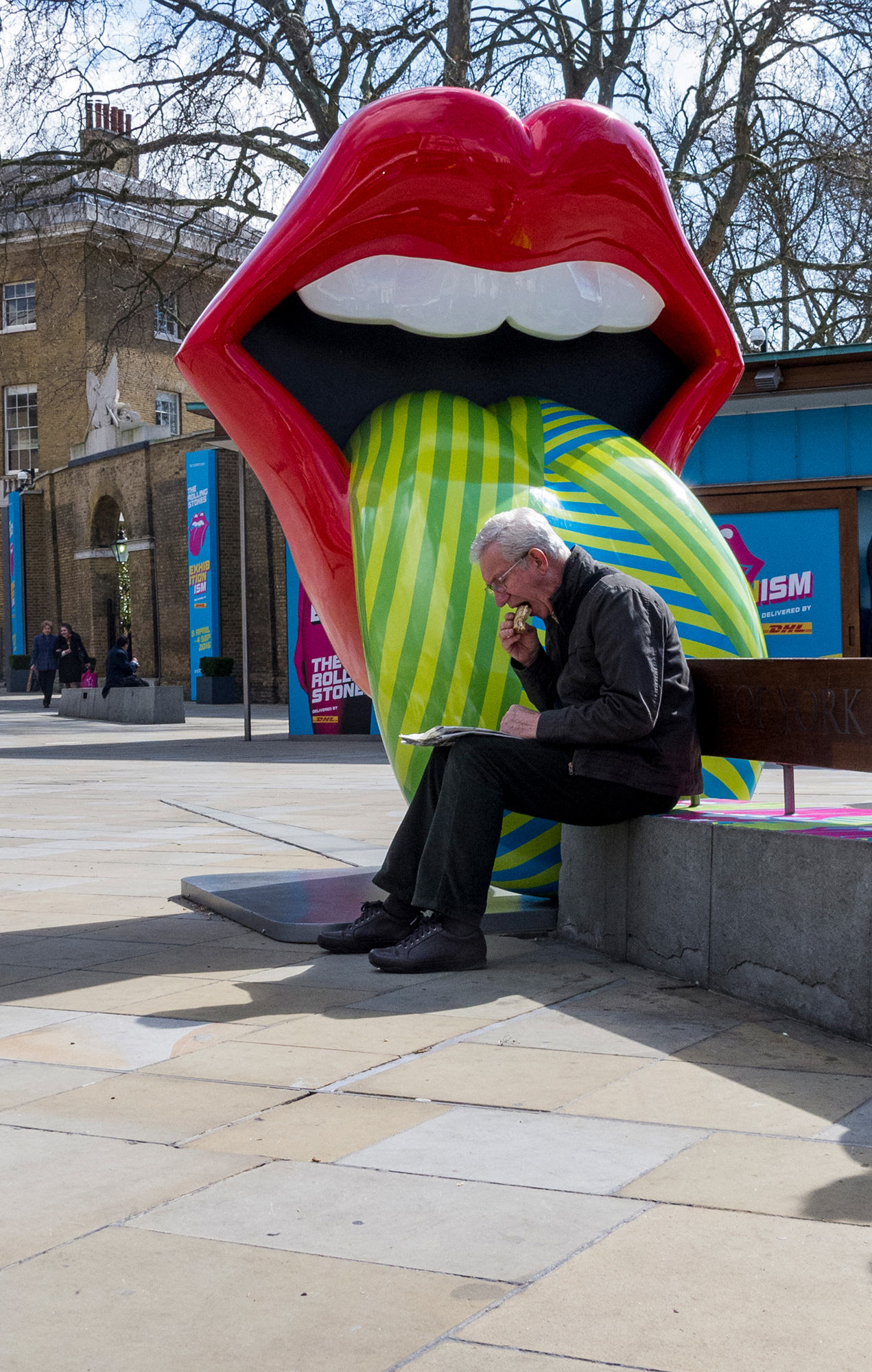
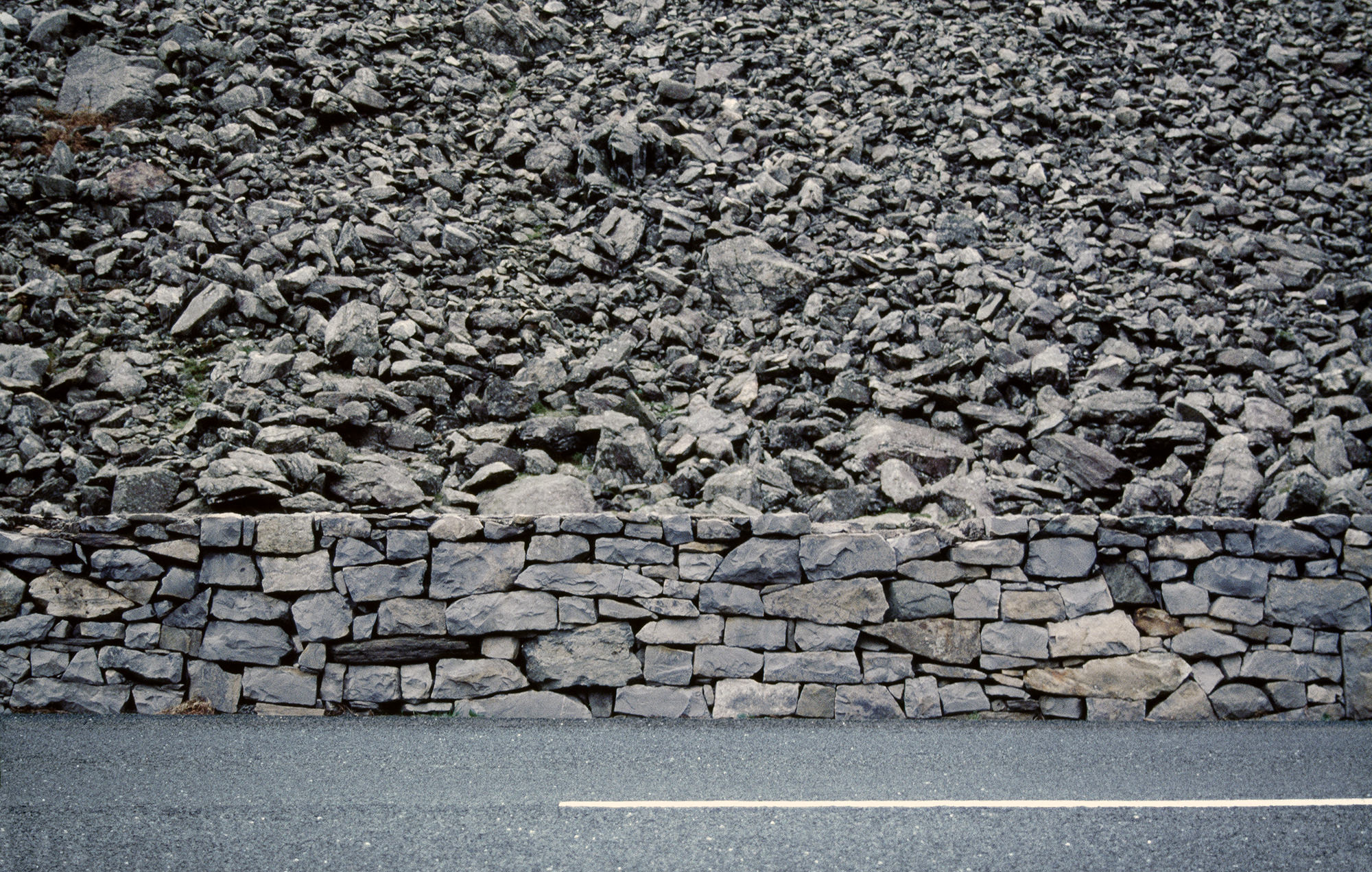
“A philosopher once said ‘Love cannot be achieved, you can only be available for it’ and I approach photography in the same way. I find that Life gives constantly.”
After shooting, what actions do you take in terms of processing and editing?
I rarely look at what I have shot until I am back at my desk although I’m not sure that is a good thing – I should probably look more often to see if I can improve the shot.
Are you currently working on any project?
As I mentioned earlier, many projects seem to be appearing organically out of my many, many negatives, transparencies and digital files – rather absurd subjects like Supermarket Spills, People Carrying Things, Accidental Sculptures, Jackets With A Life of Their Own…
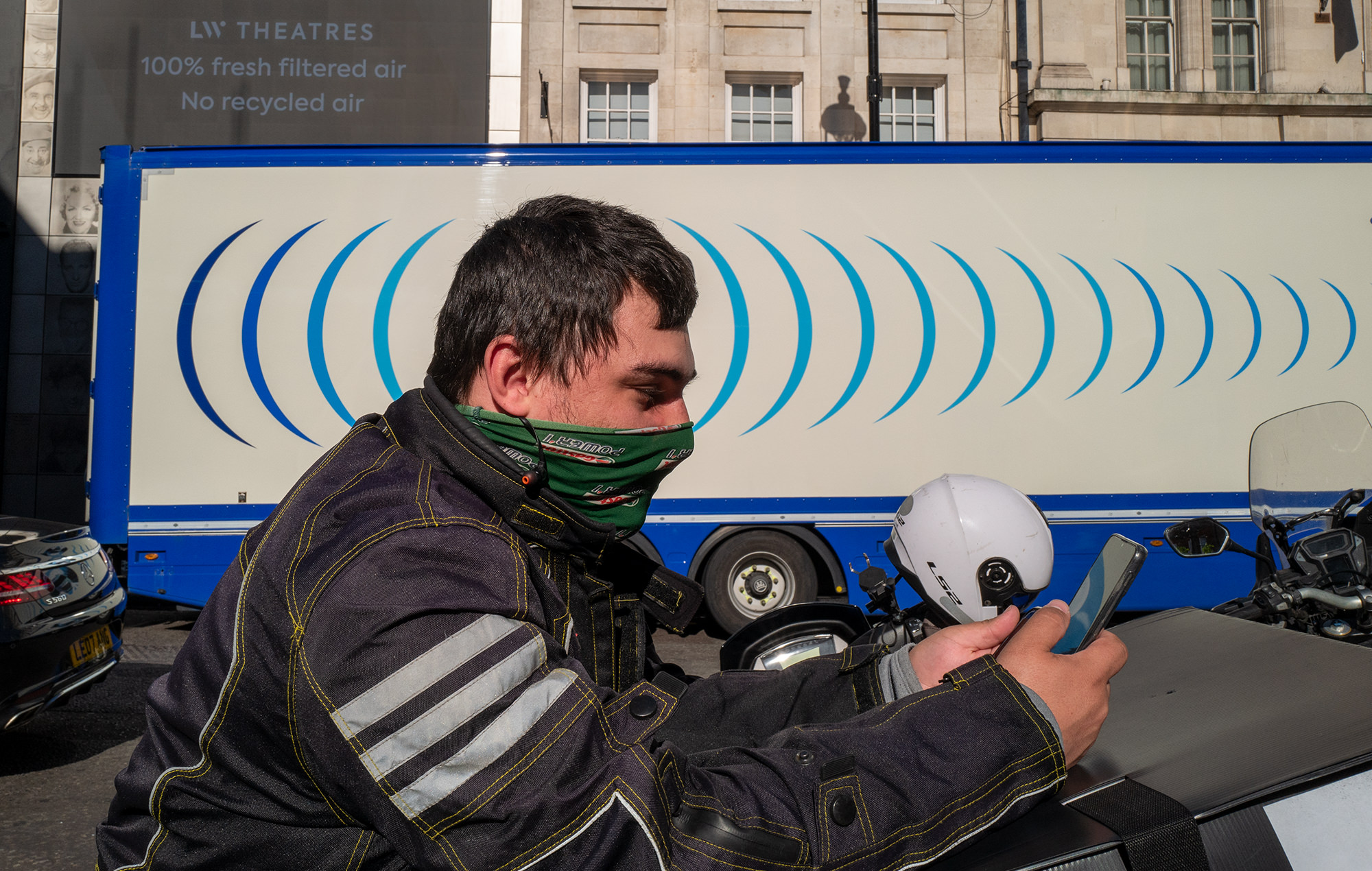
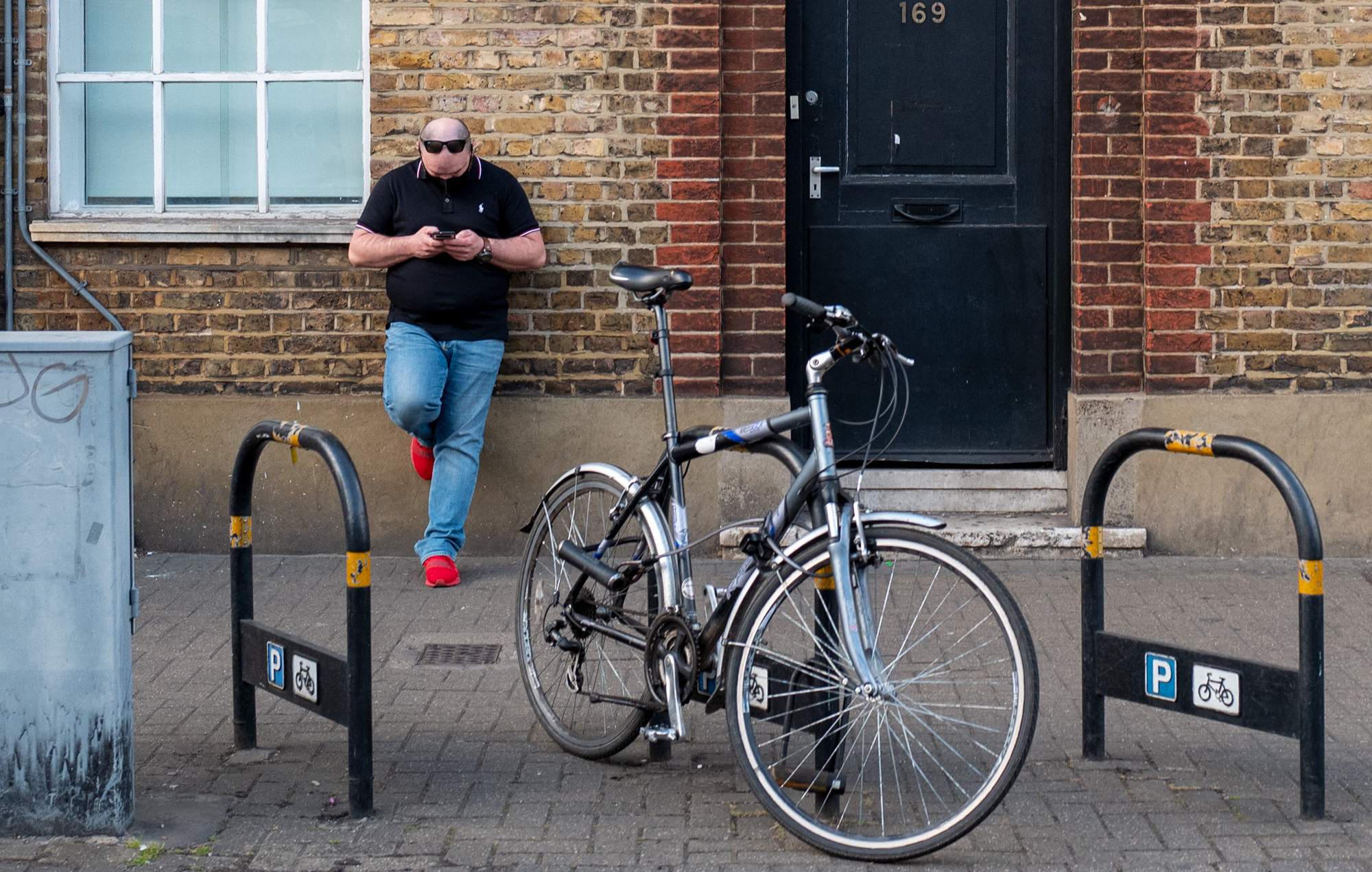
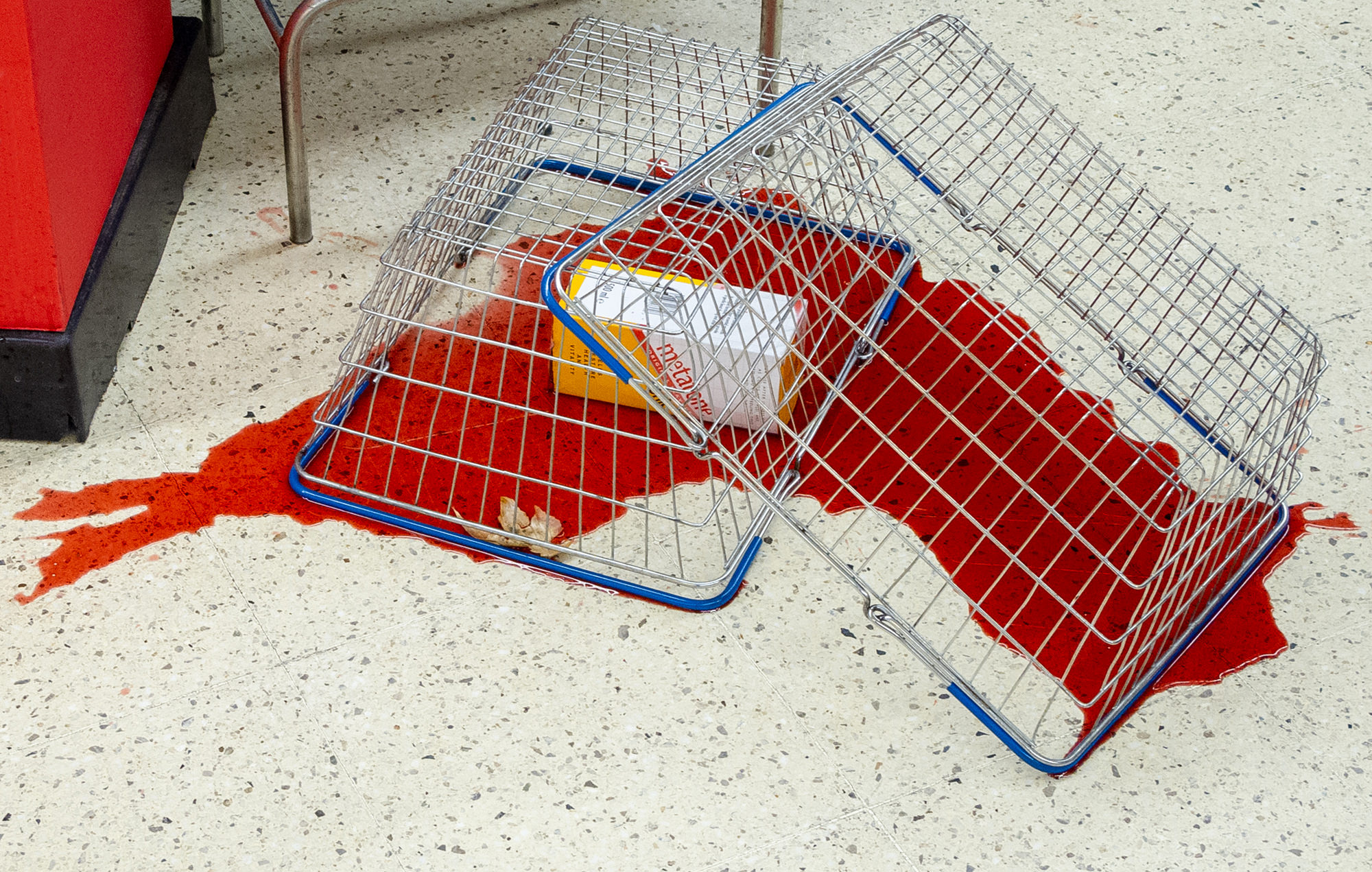
Which are your favorite photography books?
We street photographers don’t get paid for what we do, haha, so I’m afraid I don’t buy so many books these days but here are a few favourites, not necessarily Street:
Elliott Erwitt – Personal Exposures
Robert Doisneau – Un Certain Robert Doisneau
Magnum – 50 Years of Photographs
Richard Billingham – Ray’s A Laugh
Andreas Gurksy – Photographs from 1984 to The Present
Is there a country or a city that you like to photograph more than others?
To nominate one city or country would go against my principal of taking photographs wherever life leads me but I would drop a quiet word in for Paris, Rome and London.
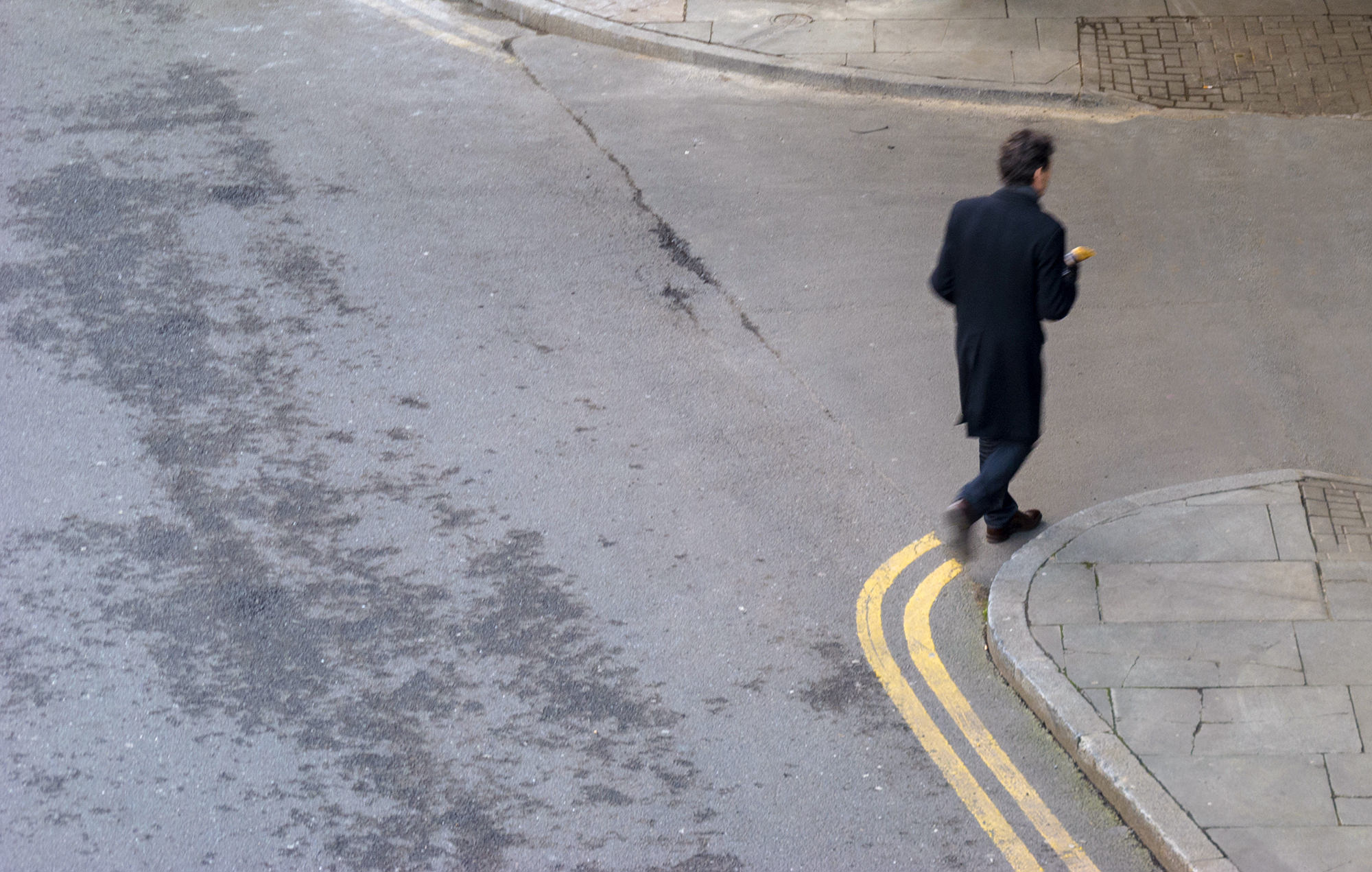
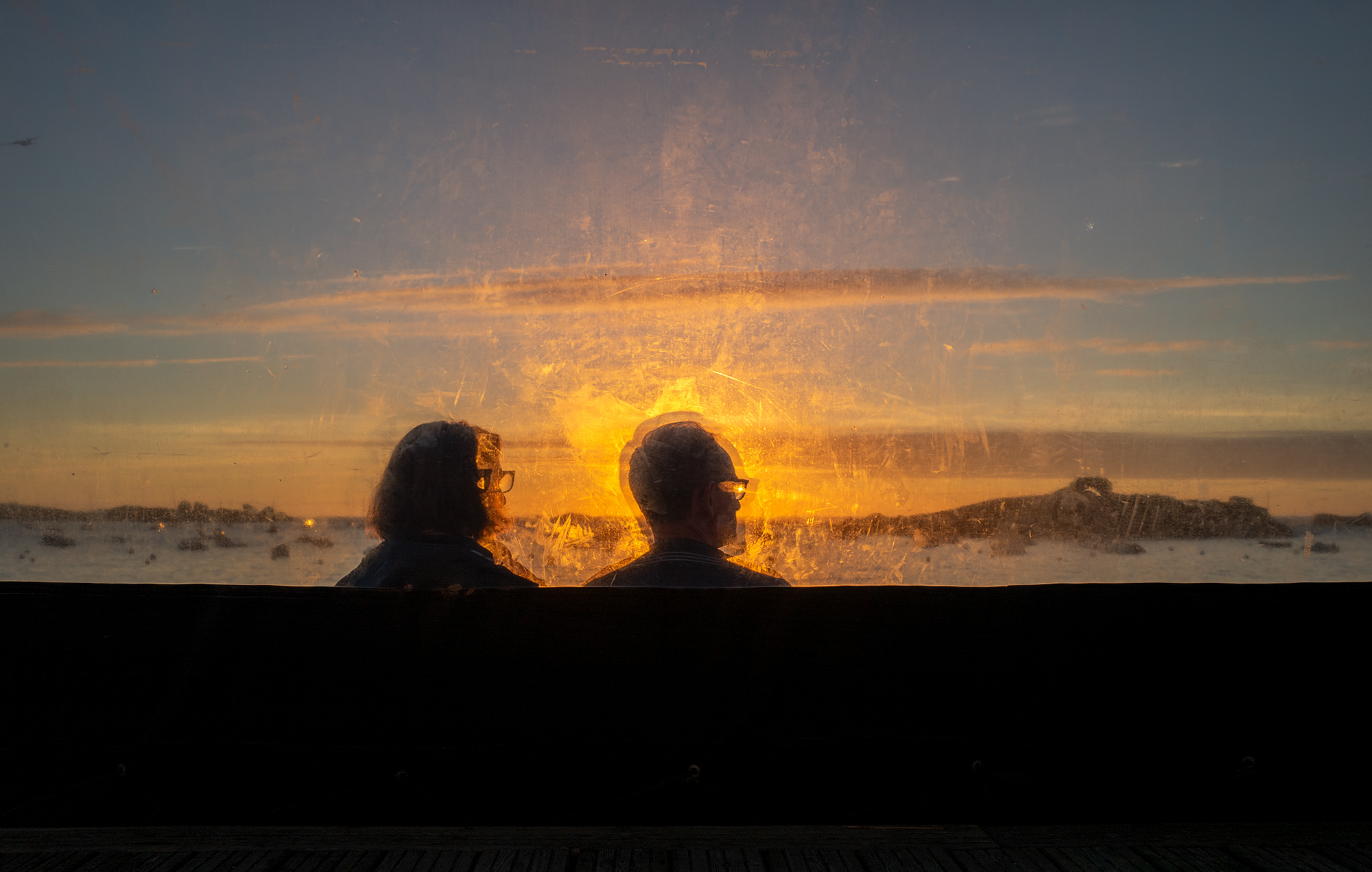
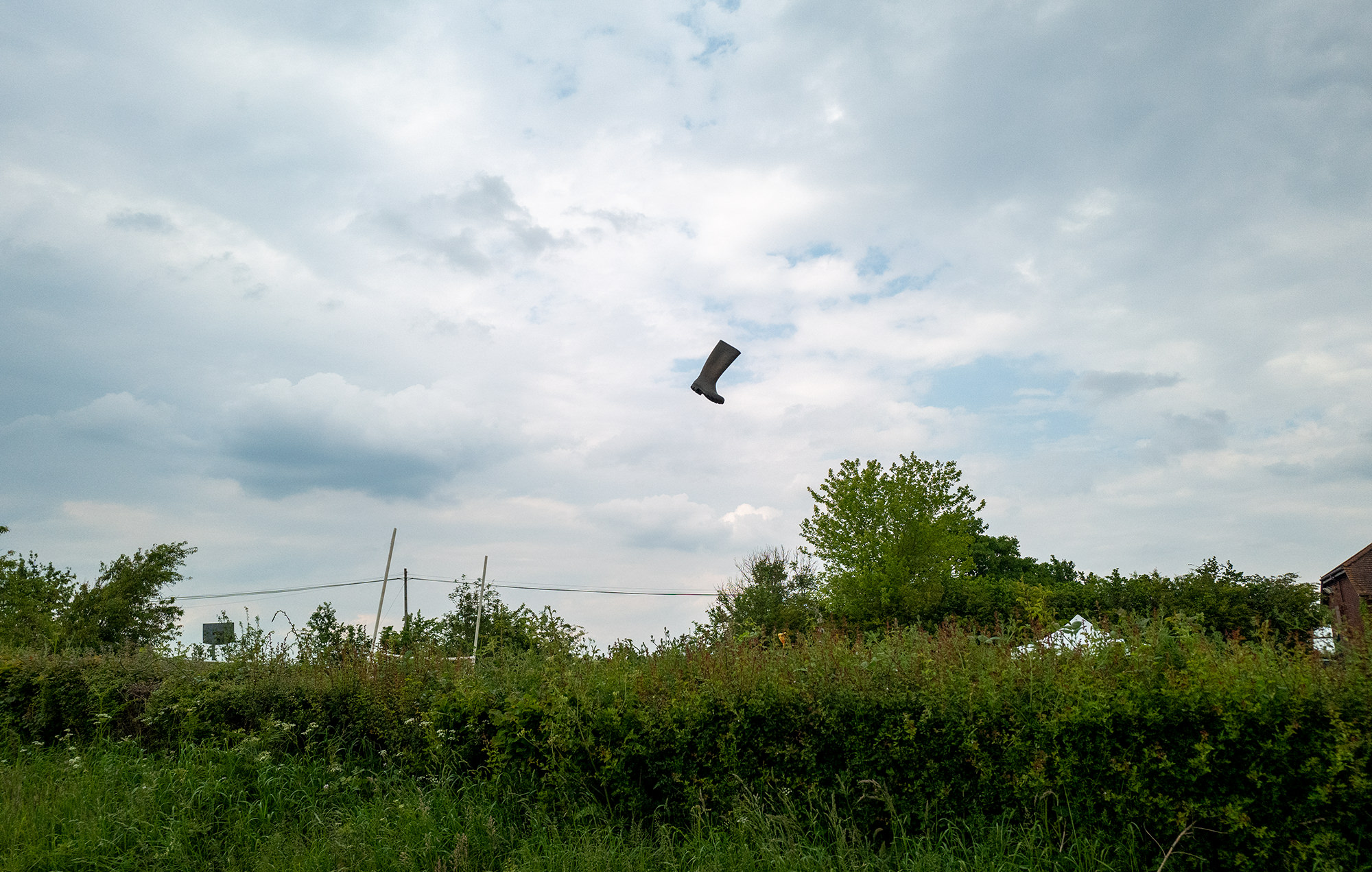
What advice would you give to someone who is starting to do street photography?
Use a camera that can go with you everywhere and is discreet so that you are not self-conscious when shooting – for me that was a pocket camera. I would also suggest that an actual camera is better than a phone because it is constantly saying ‘use me’.
And live your life ‘lost in wonder, love and praise’ – you will be amazed at what presents itself to your camera.
Thank you!
ALAN BURLES BIOGRAPHY
I was born in Zambia and lived there until I was 8 years old when my father’s work moved back to near London in the UK.
School and childhood were happy and looking back I see I was taking photographs of my school friends even when I was 10 – I even took a selfie at the same age!
In my youth I ran a discotheque and was in a New Wave band and then, after art school I got my job in advertising.
I am married with two children and am happily living in London, a city I love.
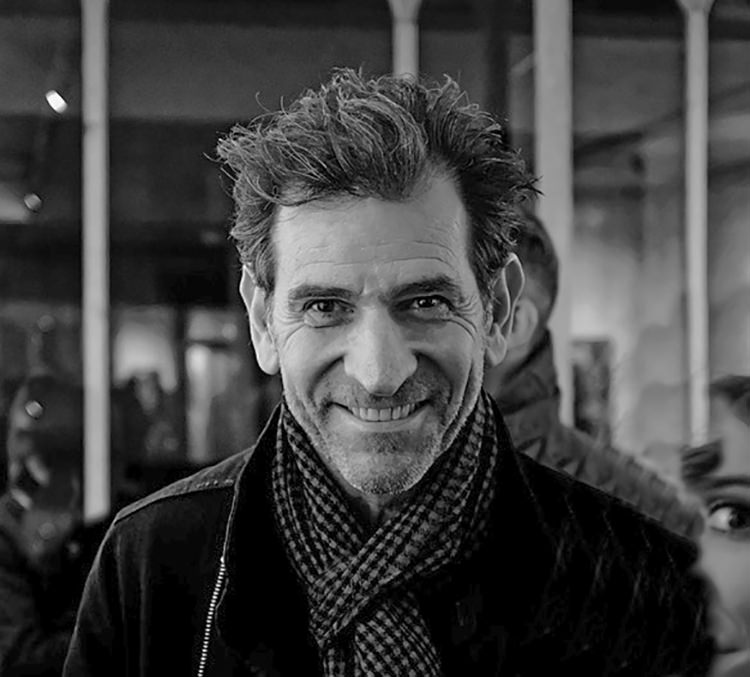
Alan Burles Links:
Website: https://www.alanburles.com/
Instagram: https://www.instagram.com/alanburles/

